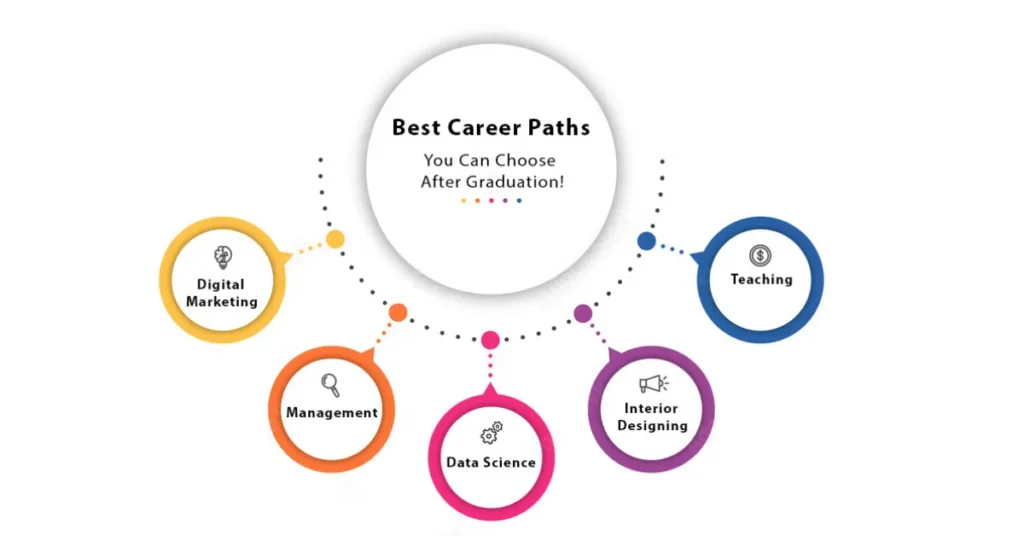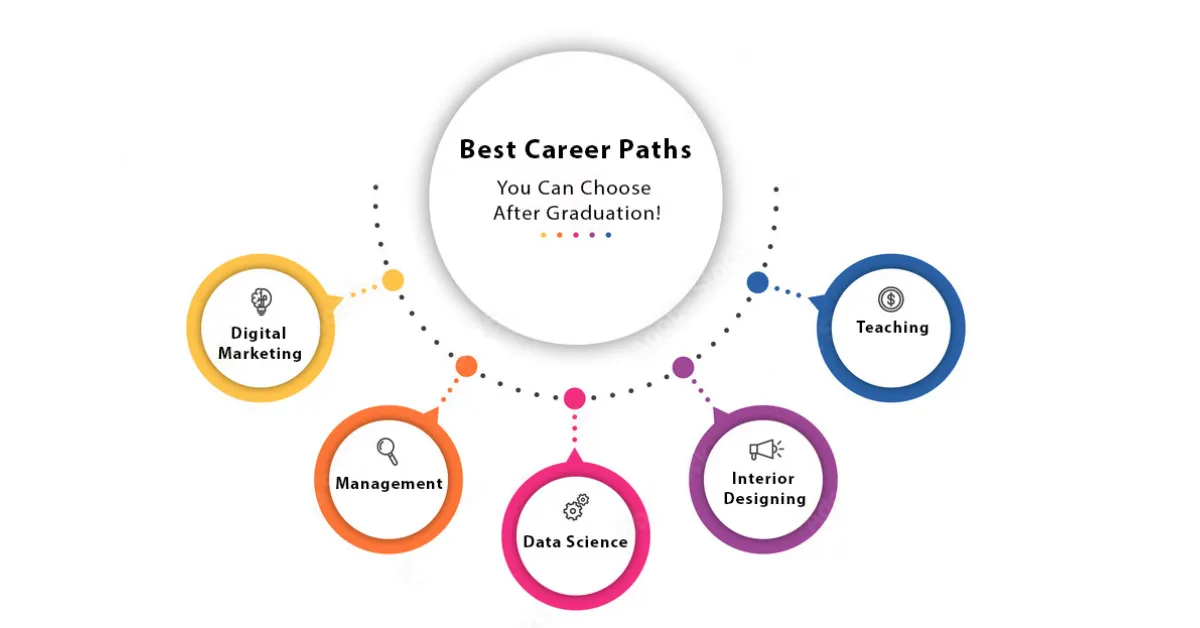Graduating from college is a pivotal moment that signifies both achievement and the start of a new chapter in life. For many, it marks the transition from academic life to the professional realm, filled with numerous career opportunities. This article delves into various paths graduates can take, encompassing both traditional roles and emerging fields, along with the option for further education.
The leap from college to the workplace can feel overwhelming. Graduates often grapple with the challenge of choosing a career that not only offers financial security but also aligns with their personal ambitions. By exploring a range of career options, graduates can gain clarity and confidence in making decisions about their future.

Traditional Career Paths
Many graduates gravitate toward established career paths known for their stability and growth potential. Here are some popular options:
1. Business and Management
Graduates with degrees in business or management can explore a variety of roles in sectors like finance, marketing, and human resources. Possible job titles include:
- Business Analyst
- Marketing Coordinator
- HR Manager
- Project Manager
2. Education
For those passionate about fostering knowledge and growth, a career in education can be rewarding. Graduates can pursue roles such as:
- Classroom Teacher
- Educational Administrator
- Academic Advisor
3. Healthcare
The healthcare sector offers diverse opportunities, particularly for graduates with backgrounds in nursing, biology, or health sciences. Potential careers include:
- Registered Nurse
- Health Services Manager
- Clinical Research Coordinator
Emerging Fields
Alongside traditional careers, new fields are emerging due to advancements in technology and shifts in consumer needs. Here are a few areas experiencing growth:
1. Information Technology (IT)
The rapid advancement of technology has made IT a critical field. Graduates can consider roles such as:
- Software Engineer
- Data Scientist
- IT Security Analyst
2. Renewable Energy
With an increasing focus on sustainability, the renewable energy sector is on the rise. Career opportunities include:
- Sustainability Consultant
- Energy Engineer
- Environmental Policy Analyst
3. Digital Marketing
As businesses expand their online presence, digital marketing has gained immense importance. Graduates can explore positions like:
- Digital Marketing Strategist
- Content Creator
- Email Marketing Specialist
Further Education and Specialization
Pursuing further education can enhance career prospects and specialization in specific fields. Graduates have several options, including:
1. Master’s Degrees
A master’s degree can lead to advanced job opportunities and higher earning potential. Popular programs include:
- Master of Business Administration (MBA)
- Master’s in Data Analytics
- Master’s in Public Health
2. Professional Certifications
Certifications can provide a competitive advantage in certain industries. Examples include:
- Certified Financial Planner (CFP)
- Cisco Certified Network Associate (CCNA)
- Certified ScrumMaster (CSM)
Internships and Entry-Level Positions
For recent graduates, internships and entry-level roles can serve as valuable gateways to their chosen careers. These positions provide essential experience, allow for networking, and enhance resumes.
Strategies for Securing Internships and Jobs:
- Networking: Engage with alumni, attend industry events, and leverage platforms like LinkedIn to connect with professionals.
- Customizing Applications: Tailor your resume and cover letter to each job, highlighting relevant skills and experiences.
- Interview Preparation: Practice for interviews by reviewing common questions and developing a compelling personal narrative.
Conclusion
Graduating from college opens a multitude of career opportunities. By considering traditional paths, exploring emerging fields, and weighing further education, graduates can find fulfilling careers that resonate with their interests and ambitions. Remaining flexible, seeking mentorship, and staying updated on industry trends are vital strategies for navigating the post-graduation landscape. With dedication and the right resources, graduates can embark on successful career journeys.
